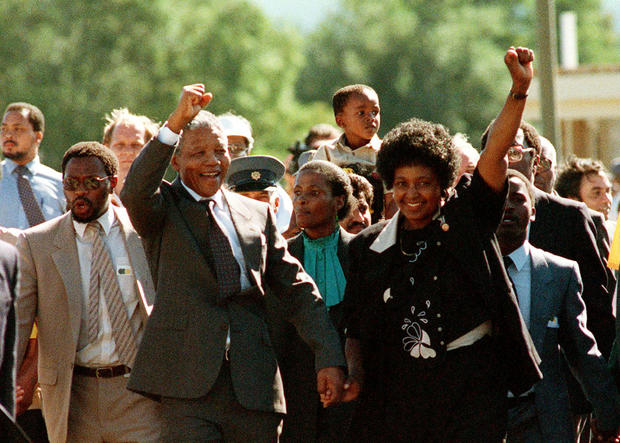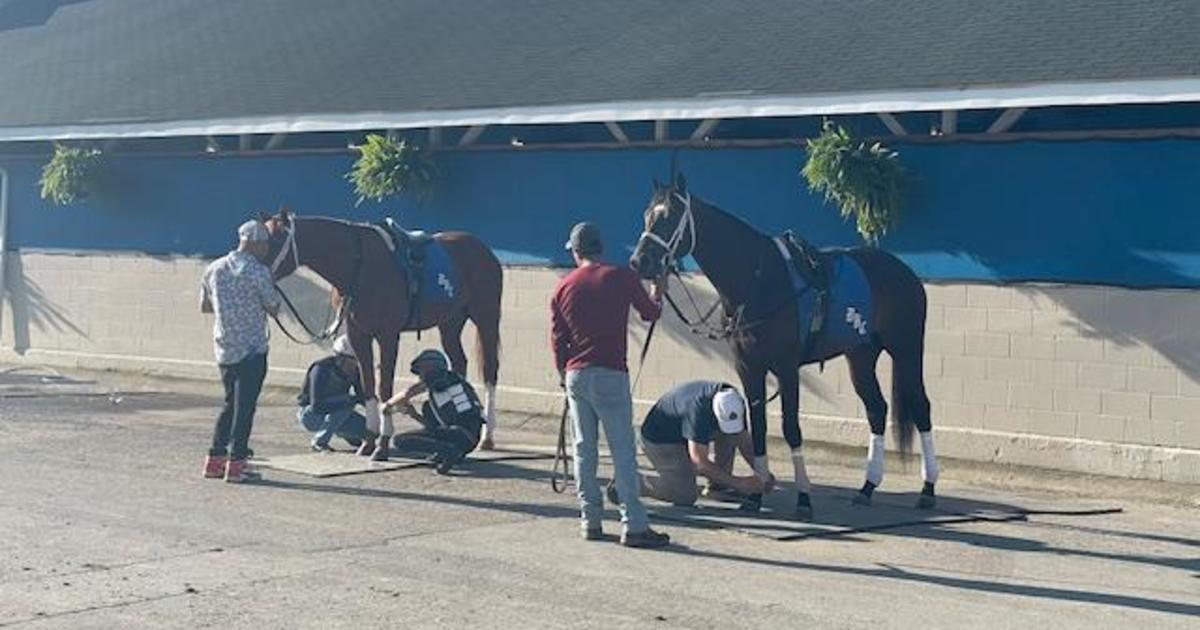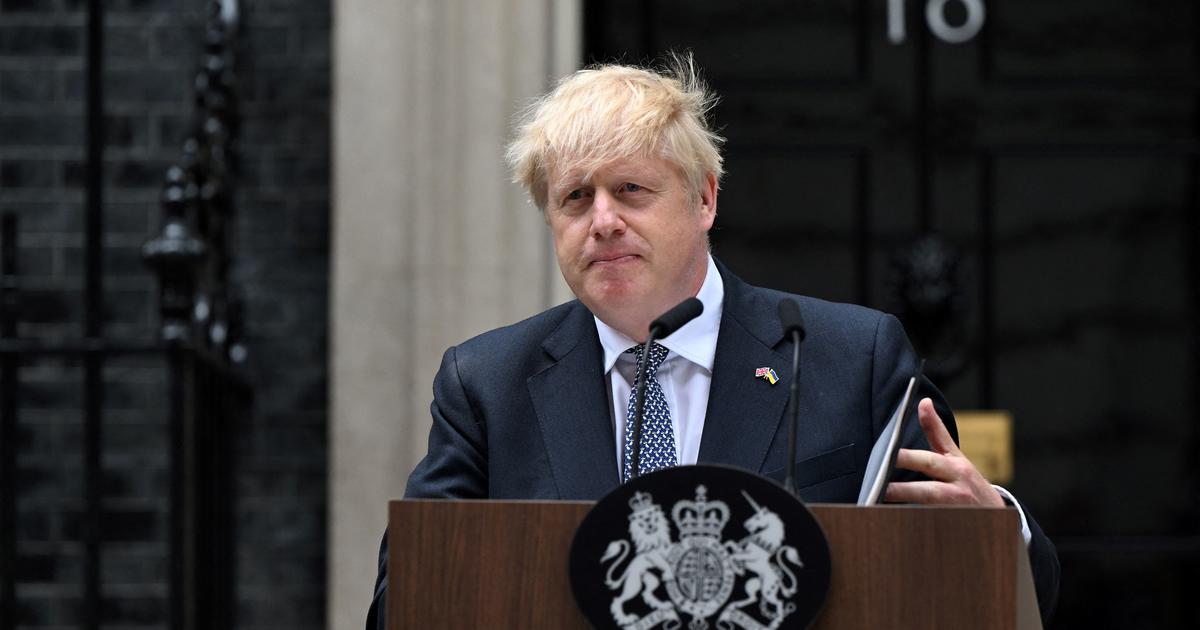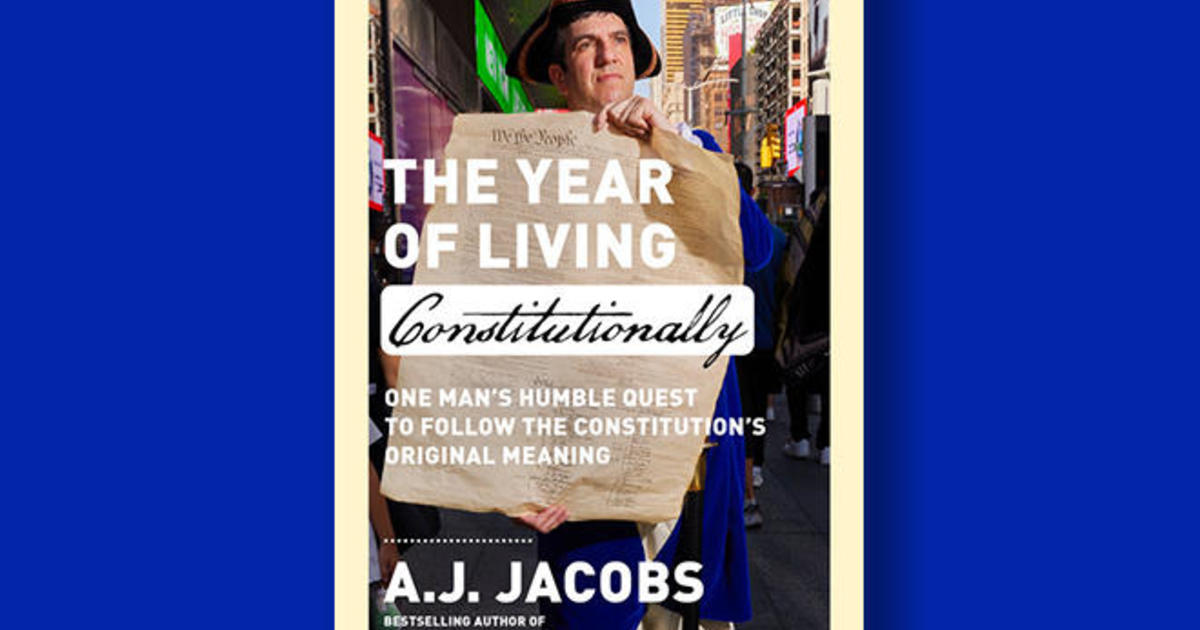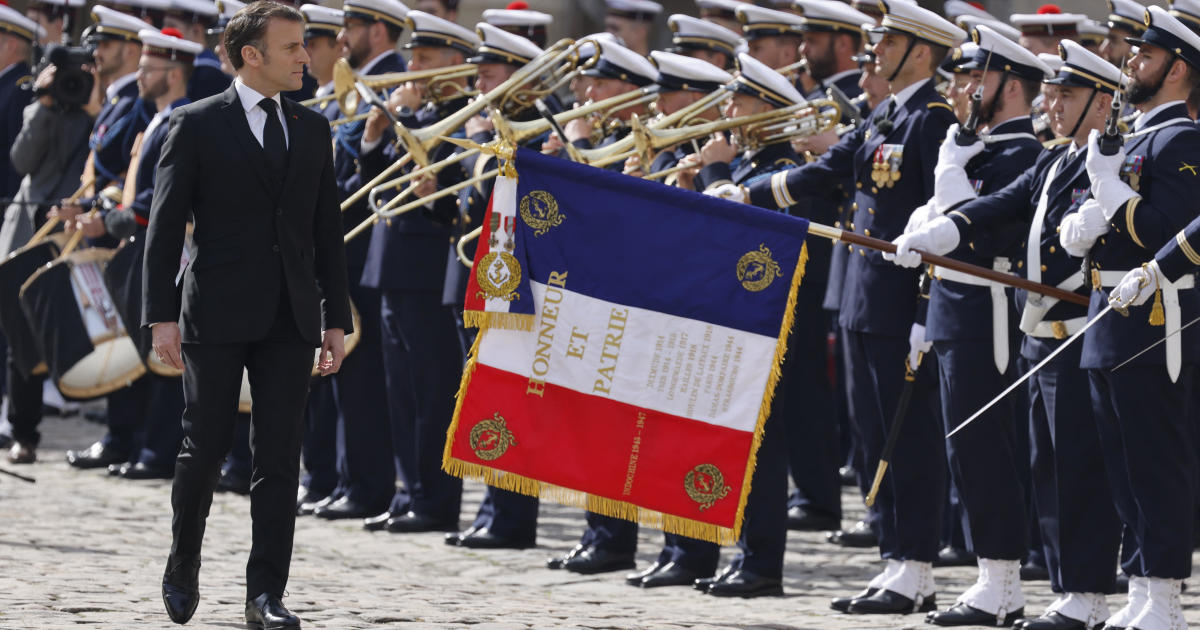What the U.S. can learn from South Africa's reckoning with racism
Johannesburg — Less than 30 years ago, South Africa was a global pariah. Racism was not only legal, but entrenched in its system of apartheid. When that system ended, a process began in an attempt to unite a deeply divided nation, and the country took some very public steps to overcome the trauma.
South Africa's struggle to deal with its racist past may hold important lessons for the U.S., both in terms of what has been done right, and where it went wrong
It began with former President Nelson Mandela. After spending 27 years behind bars, Mandela forgave his jailers and set about reconciling the country.
He was guided by the principle he wrote about in his book, Long Walk To Freedom: "No one is born hating another person because of the color of his skin, or his background, or his religion. People must learn to hate, and if they can learn to hate, they can be taught to love, for love comes more naturally to the human heart than its opposite."
Caught on video
Long before the smartphone camera became a human rights watchdog, CBS News captured on film an incident in 1985 that became known as the Trojan Horse massacre. The killings were not unusual, but the video was. State-sanctioned killings during South Africa's apartheid years were rarely caught on film.
White police officers stacked empty wooden crates onto a truck and concealed themselves in the middle. Then the vehicle drove down a road in Athlone, Cape Town, that was a central gathering point for daily student demonstrations. Suddenly the policemen sprang up and began firing on unarmed black protesters, killing three of them — the youngest an eleven year old boy.
The massacre was a reflection of the increasing desperation of the apartheid government to quell social unrest as protests grew louder and louder across the country. This time, police had been caught committing an appalling act of brutality on camera.
Which is why, more than three decades later, the police killing of George Floyd still takes an emotional toll on black South Africans, who find themselves reliving the trauma of apartheid, which legalized systematic and violent racism.
That system was eventually dismantled in 1994 through a negotiated settlement. Under then-President Mandela, the country began a process of truth telling in a bid to heal the wounds of the past.
For seven years, the work of the official Truth and Reconciliation Commission (TRC) was broadcast regularly on national television, led by Nobel Peace Laureate Archbishop Desmond Tutu.
Opening the wounds
"It's not easy to open the wounds, it's very painful," Tutu once told "60 Minutes" correspondent Bob Simon. "But if you don't want them to fester, you must open them up and cleanse them and then pour balm on them."
The TRC had a simple formula: truth in exchange for amnesty from prosecution for perpetrators, and closure and reparations for their victims.
Some of the perpetrators were police officers like Dirk Coetzee, who led a state-sponsored death squad. This was a man who once barbecued the body of a young student until it turned to ashes, in order to destroy evidence of the murder.
"It was just a job that had to be done — an enemy, one of the enemies that had to be dealt with. And someone had to the job," he told Simon. "Another day's work."
"So you were playing God?" pushed Simon. Coetzee's chilling retort: "We were God."
More than 21 survivors of unspeakable atrocities testified before the commission. The testimony was so devastating that at one point it became even too much even for Tutu to bear — he broke down and wept openly.
Former anti-apartheid campaigner Reverend Frank Chikane was another survivor. He was imprisoned, tortured and nearly died after being poisoned by the apartheid government. He forgave his perpetrator.
"Bitterness destroys you, it doesn't destroy the person who caused you the pain," he said.
But Chikane hasn't forgotten: "Forgiving doesn't mean forgetting. The guy who tortured me, it doesn't change. But my attitude against him became completely different."
"How do you forgive if you're still hungry?"
The process was flawed. Many victims felt cheated out of retributive justice, especially as not everyone received reparations. But it did open up a national dialogue in which white South Africans could no longer deny the crimes committed in their name. Twenty-six years later, race remains the enduring fault-line of this country's discourse.
Patamedi Lebea, an Umuzi Youth Development Manager, was born as apartheid ended. She believes South Africa is a lot better at having difficult conversations about race than the U.S.
"We have more conversations about race. Race is a conversation that never ends in our country," he told CBS News.
But reconciliation isn't so easy if, like him, you live in a township where some residents still don't have electricity.
"How do you forgive if you're still hungry?" Lebea asks. "There's still this thing that stands before me, this blackness that hinders me in everything I do. How do I, then, even as a new generation, say, 'we forgave?'"
It's a question many young people ask, and one that radio talk show host Eusebius McKaiser confronts regularly on his show. He's tired of white people asking him what they can do to change - to stop being racist.
"As a black person, as a black thinker, you are expected to be the go-to person for solutions on the race question," he said. "That is problematic, because if racism is relational, it actually means that white people are as fluent in racism as black people. After all, it takes two to tango badly."
McKaiser says white South Africans need to figure out how to change themselves, and a good place to begin is with the fact that this country's economy is still in the hands of a white minority 26 years after the end of apartheid. "That really is the sin of 1994, was to decouple the racism conversation from the economic justice conversation."
It's a point echoed by Reverend Chikane, who says you can't deal with racism without dealing with the economy. What's happening in the United States, with the killing of George Floyd, "has exposed the rot. We really need to take a stand and say people who are poor in the world 'can't breathe.' There's enough resources in the world, why can't we change?"
South Africa has shown the world it's possible to have uncomfortable and ongoing conversations about race. But words alone are meaningless.
There is no quick fix. Reconciliation is only possible when it comes with economic justice, an issue South Africa is still dealing with today.
